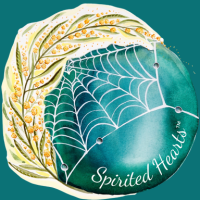
.
Hello and Welcome,
If you are familiar with me and my work, you will know I am deeply passionate about Aware Parenting. I first discovered Aware Parenting at the back of a calmbirth™ workbook when I was pregnant with my first child. The article was written by Marion Rose PhD, and deeply resonated with myself and my husband. I quickly ordered all of Dr Aletha Solter’s books that were published at the time (2013). Aletha is the founder of the Aware Parenting Institute and the author of 6 books. Her first book The Aware Baby was published in 1984 and revised in 2001, and her most recent book Healing Your Traumatized Child was published in 2022.
I have been a certified Aware Parenting Instructor since March 2016, and a certified Level 2 Aware Parenting Instructor since August 2023, and I work with parents around the world. Not only do I practice Aware Parenting with my own children, who have been raised with this approach since the moment they were born, I also embed Aware Parenting in my Natural Learning Haven (Family Day Care).
I find this approach so life-enriching and world-changing. I honestly have yet to come across a parenting or educator challenge that cannot be supported with Aware Parenting.
In these page on Aware Parenting, you will find article, podcast episodes and information directly related to the Aware Parenting approach. These resources can also be discovered on other pages on my website. However, for clarity and to avoid misinformation/confusion, only the information presented under Aware Parenting, relates to this approach. Everything else you explore and discover relates to my own work, the Spirited Hearts® approach.
What is Aware Parenting?
(Copyright © 1994 by Aletha Solter copied with permission from the Aware Parenting Institute website http://www.awareparenting.com)
Aware Parenting is an attachment-based and trauma-informed approach to parenting which does not use either punishments or rewards. It questions most traditional assumptions about raising children and proposes a new approach that can significantly improve relationships within a family and prevent behavior problems. Parents who follow this approach raise children who are cooperative, compassionate, competent, nonviolent, and drug free.
Aware Parenting is based on the work of Aletha Solter, Ph.D., a Swiss American developmental psychologist, international speaker, consultant, and author of six books. She is recognized internationally as an expert on attachment, trauma, non-punitive discipline, and developmentally appropriate education.
The approach is supported by research in the fields of attachment, child development, neurobiology, trauma, psychotherapy, and education. A research study has demonstrated the effectiveness of some aspects of the Aware Parenting approach.
Founded in 1990, the Aware Parenting Institute is an international organization with certified instructors in 24 countries who are helping to spread this approach around the world. These instructors work independently and are not employees or subcontractors of the Aware Parenting Institute. The institute has no political or religious affiliation.
The Three Aspects of Aware Parenting
(Copyright © 1994 by Aletha Solter copied with permission from the Aware Parenting Institute website http://www.awareparenting.com/aspects.html)
Attachment-style parenting
Natural childbirth and early bonding
Plenty of physical contact
Prolonged breast-feeding
Prompt responsiveness to crying
Sensitive attunement
Non-punitive discipline
No punishments of any kind (including spanking, "time-out", and artificial "consequences")
No rewards or bribes
A search for underlying needs and feelings
Anger management for parents
Peaceful conflict-resolution (family meetings, mediation, etc.)
Healing from stress and trauma
Recognition of stress and trauma (including unmet needs) as primary causes of behavioral and emotional problems
Emphasis on prevention of stress and trauma
Recognition of the healing effects of play, laughter, and crying in the context of a loving parent/child relationship
Respectful, empathic listening and acceptance of children's emotions
